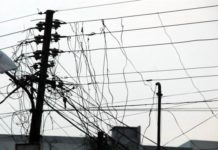In a significant development for Pakistan’s telecommunications sector, the interim federal cabinet has given its nod to the much-anticipated telecom infrastructure-sharing framework and formed a committee to oversee the auction of 5G spectrum.
The telecom infrastructure-sharing framework allows telecom companies the option to jointly use critical resources like towers, antennas, cable ducts, and other essential infrastructure. The objective of this mechanism is to optimize resource utilization and potentially reduce operational costs. Additionally, the framework is expected to create opportunities for new companies to enter the domestic telecom market.
During a press briefing, Caretaker IT Minister Dr Umar Saif said that auction committee, led by Caretaker Finance Minister Shamshad Akhtar, has been established to oversee the rollout of the faster 5G network. The committee is composed of ministers responsible for IT, science and technology, industries and production, secretaries from relevant ministries, and officials from the Federal Board of Revenue.
The committee’s primary responsibility will be to assess the availability of spectrum across different frequency bands, including 700 MHz, 1,800 MHz, 2,100 MHz, and 2,600 MHz. The auction of these spectrum resources will be based on recommendations provided by the Pakistan Telecommunication Authority (PTA).
Dr Saif highlighted that the current spectrum allocation to the four telecom companies operating in Pakistan may not be sufficient to meet consumer demands, necessitating the auction.
He commended the IT ministry for its recent initiatives, which aim to boost exports in the IT and telecom sector. These initiatives include local mobile phone production, supporting freelancer growth, and reducing reliance on imports. Pakistan is recognized as the seventh largest mobile phone market globally, with a consumer base of 194 million. The government aims to promote local manufacturing of affordable and high-quality mobile phones.
Dr Saif acknowledged the efforts of previous governments and underscored the importance of the initiatives undertaken by the IT ministry over the past two months. These initiatives are expected to enhance exports in the IT and telecom sector, fostering local manufacturing, conserving foreign exchange, and generating employment in the high-tech industry.
To further facilitate IT exporters and enhance exports, Dr. Saif mentioned that the State Bank of Pakistan (SBP) recently increased the retention limit for export proceeds from 35% to 50% in the Exporters’ Specialised Foreign Currency Accounts (ESFCAs). This change allows IT exporters to make payments from these accounts without requiring approval from the SBP or other banks.
Notably, the new initiatives also include financial assistance of Rs100,000 for freelancers to establish their e-working centers, addressing the need for suitable workplaces for freelancers. Dr. Saif emphasized that freelancers have the potential to earn up to $30,000 per year, making a significant contribution to the national economy.

























